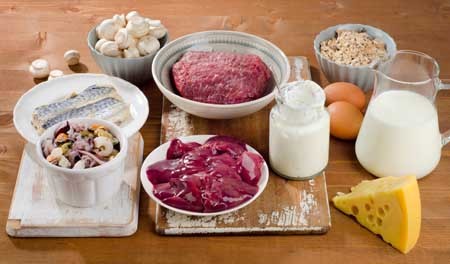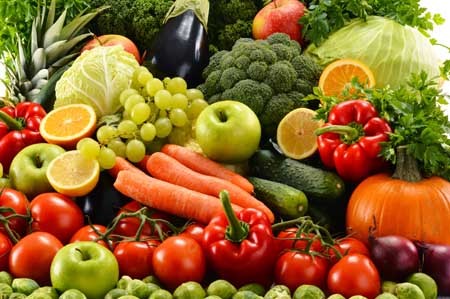Vegan Diet Can Lead to Vitamin B12 Deficiency
Vitamin B12 deficiency is a risk associated with a vegan diet. B12 deficiency can lead to depression, anemia, and even irreversible neuron damage, according to researcher Drew Ramsey, who spoke on the topic at the 2016 meeting of the American Psychiatric Association.
A study of vegans showed that 52% were deficient in vitamin B12, while another 23% had insufficient levels of the vitamin. B12 is found in the highest concentrations in certain seafoods and liver. It is also found in dairy products, eggs, fortified breakfast cereals, and is available in supplement form.
Women who eat a vegan diet while pregnant may not be providing their offspring with enough nutrients, according to researcher Emily Deans, who also spoke at the meeting. A case report on 30 vegan mothers found that 60% of their offspring had developmental delays and 37% showed cerebral atrophy.
Deans said that eating no meat is associated with higher rates of depression, anxiety, and worse quality of life.
Ramsey believes that while the North American diet is probably weighted too heavily toward animal products, seafood remains an important source of B12.
Eat More Plants for Health
A long-term study of 130,000 nurses and other health professionals found that eating more plants lowered risk of death over several decades. A 3% increase in calories from plant protein was associated with a 10% lower risk of death during the study period.
The research, by Mingyang Song and colleagues in the journal JAMA Internal Medicine, found that the more animal protein consumed, the higher the risk of death from cardiovascular disease during the study. A 10% increase in the proportion of calories from animal protein was associated with a 2% increase in deaths. This association was worse for people who were obese or heavy drinkers.
Song and colleagues suggest that plants are a better source of calories than are animal products, and that fish or chicken are better choices than processed red meat.
Researcher Dariush Mozaffarian recommends eating plant-based foods like fruits, nuts, seeds, beans, and non-starchy vegetables, but avoiding those like French fries or white bread that have little nutritional value.



